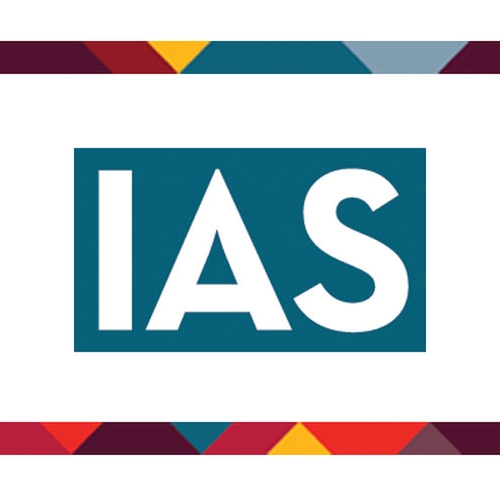We are delighted to announce that the five IAS Interdisciplinary Doctoral Fellows for 2022–2023.
Interdisciplinary Doctoral Fellows spend a year in residence at the IAS. Together with our Faculty Fellows and Scholars in Residence, they constitute a supportive interdisciplinary intellectual community in which they work intensively on their own research and creative projects and meet regularly to discuss their work and exchange ideas.
We look forward to welcoming each of these scholars to our fellows community!
Elizabeth Calhoun
Geography, Environment, and Society, College of Liberal Arts
Mentor: Nancy Luxon
“City Planning and Predictive Policing: Racial Implications of the Urban ‘Data Environment’”
Abstract: Predictive software built on years of police data have become a staple of law enforcement in all major U.S. cities. Amidst contestations over racial justice and urban electoral politics, these 'scientific' forms increasingly find support with police advocates, but also amongst technocratic city officials charged with interpreting demands to 'defund the police.' Media and policy discourse frame predictive analytics as an efficient solution to biased policing, but research shows that this software increases police presence in predominantly non-white and Black neighborhoods. How is racialization re-fashioned in the self-avowedly progressive shift from racial profiling to forms of policing rooted in the purportedly objective knowledge of an urban 'data environment'? Analyzing this transformation requires historicizing it within institutional practices that turned to environments as a form of social management, in particular mid-20th century environmental criminology and utilitarian urban design. My project develops an understanding of the rise of police use of geospatial data sets as part of a broader historic shift in the focus of governance: from deviant subjects to volatile environments.
Shankar CSR
History, College of Liberal Arts
Mentor: Miranda Joseph
“Untouchable Thought: Anti-Caste Buddhism in 20th Century Maharashtra (1956-2002)”
Abstract: In less than half a century after the conversion of half a million Dalits or ‘untouchables’ to Buddhism (1956) and the intellectual experiments in making it the foundation of Anti-caste politics, Buddhism lost its appeal amongst Dalits to the right-wing majoritarian politics of Hindutva. Departing from scholars who have diagnosed this transformation only through socio-economic analysis, I argue that an intellectual history of Anti-caste Buddhism is crucial to understand this shift in Dalit politics. I trace the intellectual history of Anticaste/Dalit Buddhism in Maharashtra to diagnose its waning and analyze the structures of Dalit thought—its constitutive gendered contradictions, limitations, and possibilities.
Dewitt King
American Studies, College of Liberal Arts
Mentor: Margaret Werry
“Wrestling with Precarity: The Hustle, The Flow, and The Black Pro Wrestler”
Abstract: Pro wrestling is a multibillion-dollar international industry that is underwritten by melodrama, action, and the spectacular. As Roland Barthes remarks “it is the spectacle of excess.” Despite this excess, it has the most labor precarity of any professional sport in the US. Pro wrestlers operate in a non-unionized industry as independent contractors signed to exclusive contracts with non-compete clauses. My dissertation examines labor precarity in pro wrestling centering the experiences of Black pro wrestlers using the concepts of work, play, and performance to understand how race and power operate in a sport where winners and losers are predetermined.
Valeria Lopez Torres
Graphic Design, College of Design
Mentor: Lana Yarosh
“Emotional authenticity in human-artificial companion relationships”
Abstract: This project explores the topic of authenticity in emotionally significant relationships between humans and artificial companions. Recent developments in Artificial Intelligence (AI) and affective computing have led to the development of platforms that allow people to interact with an artificial companion with the same frequency as which they use their phone. The unique combination of unprecedentedly–powerful AI, and ease of access presents an opportunity to examine the subjective aspects of said relationships, and identify design factors that contribute to authenticity in the user experience. This project combines ancient approaches in philosophy, contemporary perspectives in HCI, and existing frameworks in Interaction Design.
Nina Peterson
Art History, College of Liberal Arts
Mentor: Maggie Hennefeld
“Ridiculous Contraptions: American Art, Humor, and Machine Technology to Effect Social Change, 1954-1975”
Abstract: As high-technology institutions emerged simultaneously with urgent political movements during the mid-twentieth century, U.S.-based artists including Noah Purifoy, Yoko Ono, Sylvia Palacios Whitman, and Carolee Schneemann used absurd mechanical devices in sculptures, films, and performances. Identified as “contraptions” in art criticism and the news media, these machines prompted reactions ranging from amusement to dismissal even as their makers sought to critique social inequalities and to enact change. Drawing upon affect theories, social histories, and feminist and critical race studies, I examine the situations produced by these devices and the role of humor in the intersections between art, technology, and activism.
